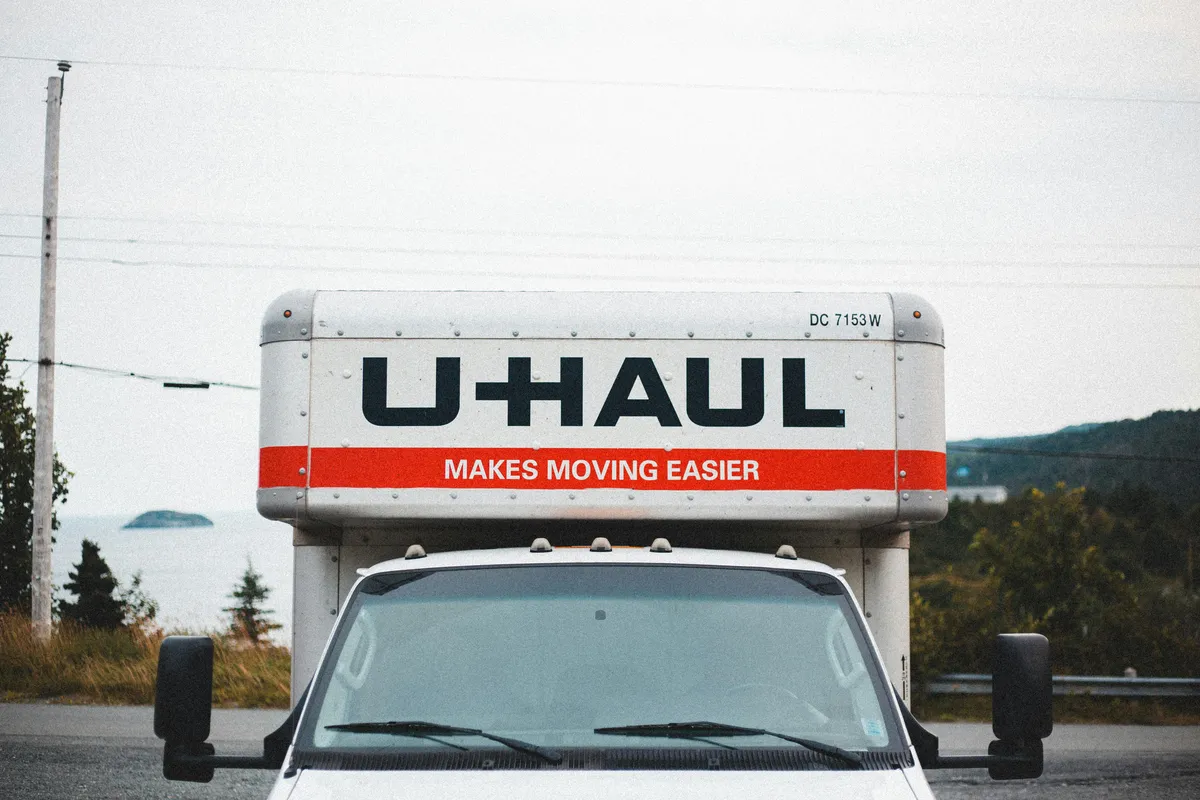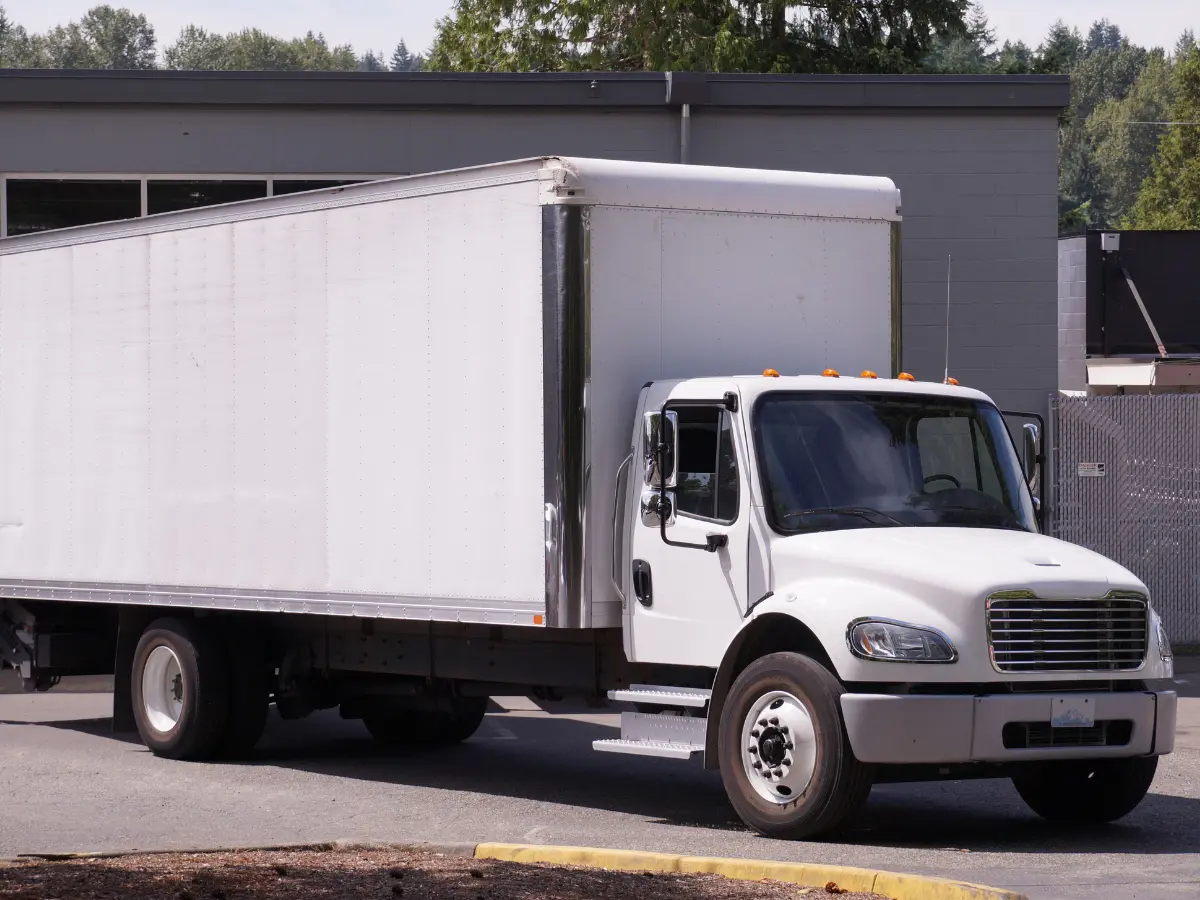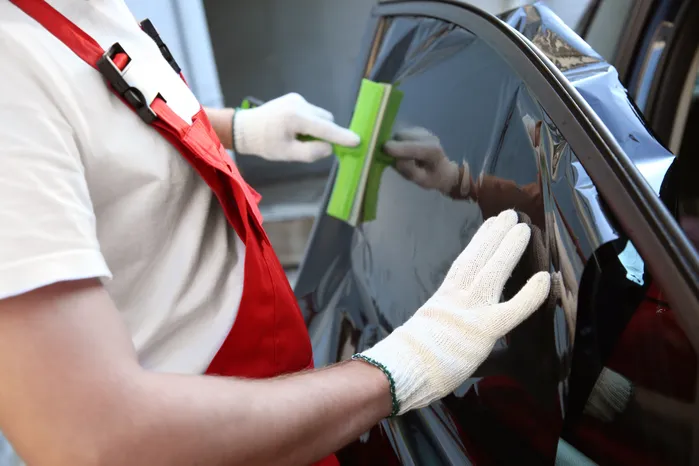5 min read time
Summary
In Nevada, a box truck does not require a CDL license as long as it weighs under 26,000 pounds.
Table of Contents

Understanding Box Trucks and CDL Licensing
Box trucks are often used for moving and delivery and differ from semi-trucks in both design and weight, as well as in regulatory requirements.
CDL licensing laws for box trucks depend on factors like gross vehicle weight rating (GVWR) and intended use, making it essential for box truck drivers and commercial drivers to know the specific thresholds before operating a box truck on public Nevada roads and highways.
Definition of a Box Truck
A box truck is a single-piece vehicle with a stretched frame and a cargo area bolted to the chassis.
The box is separate from the cab and accessed only through a rear roll-up door. Box trucks are typically used for moving, delivery services, and service work.
Key features of a box truck are:
- Stretched frame with cargo box bolted to chassis
- Cargo box separate from cab, accessed via rear roll-up door
- Commonly used for moving, delivery, and service operations
Other large vehicles without the above-listed features will most likely not be a box truck.
Types of Nevada Commercial Licenses
A Commercial Driver's License (CDL) is split into three classes, which are:
- Class A lets drivers operate combination vehicles with a GVWR over 26,000 pounds, such as tractor-trailers and large box trucks, when towing.
- Class B covers single vehicles with a GVWR over 26,000 pounds, including straight box trucks, buses, and delivery trucks.
- Class C is for vehicles carrying 16 or more passengers or transporting hazardous materials.
Proper training through a CDL training program is required to become a qualified driver who can safely operate vehicles on public roads.
A licensed CDL holder must adhere to all traffic laws, drive responsibly, and comply with all licensing obligations to keep their license and reduce the risk of truck accidents.
Eligibility Criteria for a CDL License in Nevada
Drivers seeking to obtain a CDL license must be at least 18 years old for intrastate box truck operations and 21 years old for interstate routes.
They will also need a valid driver's license, pass a DOT physical, and pass both the written knowledge test and the practical skills assessment to demonstrate their driving skills.
Additionally, drivers who are carrying hazardous materials will have to get a HazMat endorsement to their CDL license, pass a background check, and undergo extra training for hazardous material transportation.
When Is a CDL Required to Drive a Box Truck in Nevada

Navigating commercial driving regulations can be complex, especially for non-truck drivers, when it comes to box trucks. Understanding when a Commercial Driver's License is mandated helps ensure compliance, vehicle safety on the road, and avoiding fines.
CDL Requirements Based on Vehicle Weight
Box trucks with a gross vehicle weight rating (GVWR) of 26,000 pounds or less can be driven by anyone with a standard Nevada driver's license. These vehicles are classified as non-commercial, so no special license is required.
If the GVWR exceeds the 26,000-pound threshold, a commercial driver's license is mandatory for driving the large box truck. Operating a box truck that exceeds the 26,000-pound threshold without a CDL license can result in penalties, increased insurance premiums, and even liability issues in the event of a truck accident.
Vehicle Weight and Size Considerations
Understanding a vehicle's weight and dimensions is crucial for determining licensing requirements for commercial drivers, safety, and road suitability.
Key metrics like Gross Vehicle Weight Rating (GVWR) and overall size dictate whether a truck driver's commercial driving license is needed and how the vehicle will handle on various roads.
These factors also influence insurance and operational costs for large trucks and other motor vehicles.
Gross Vehicle Weight Rating Thresholds
GVWR is the combined weight of a vehicle and its cargo. The legal threshold is 26,000 pounds; below that, a non-CDL driver can operate the motor vehicle, while at or above it, a CDL is required.
Typical thresholds used by insurers and regulators for CDL operation and licensing requirements are:
- 0-25,999 lb: No CDL is required for commercial purposes
- 26,000 lb and Above: A CDL is required
Towing a trailer over 10,000 lb also requires a CDL, regardless of the truck's GVWR.
Effect of Cargo Load on Licensing Requirements
A box truck's licensing depends on its Gross Vehicle Weight Rating (GVWR). Adding cargo can push the vehicle's total weight beyond this rating, triggering a CDL requirement.
Drivers must check the GVWR sticker and compare it to the planned load. Exceeding the limit not only risks a fine but also puts others and the driver at risk for a motor vehicle accident.
Legal Consequences of Driving with a CDL License in Nevada
Operating a commercial vehicle without the required CDL or CDL endorsements can expose drivers and employers to significant legal penalties.
From civil liability and insurance complications to potential criminal penalties, the lack of proper licensing can dramatically alter the outcome of an incident.
Understanding these consequences is crucial for anyone involved in commercial transportation who seeks to operate vehicles safely.
Penalties and Fines for Unlicensed CDL Drivers
Operating a box truck without a commercial driver's license violates federal regulations and can result in civil or criminal penalties, and applies to straight trucks, pickup trucks, and bus drivers. Fines for a CDL offense can range from a few hundred to several thousand dollars, depending on the severity of the incident.
Repeat CDL violations may lead to license suspension, higher insurance premiums, larger fines, and liability issues in the event of a box truck accident.
Additionally, employers who allow unlicensed or unqualified drivers to operate their vehicles can also face fines and civil liability under Nevada's vicarious liability laws.
Real-Life Examples of CDL Penalties
Understanding real-life examples of punishments regarding unlicensed CDL drivers is good for enforcing the importance of following the law and driving with the proper licenses.
Two real-life examples of CDL cases are:
- In a 2018 federal case, the court stated that the driver operating a 27,000-pound truck without a CDL was negligent in an accident, awarding damages to the injured party.
- In a 2020 decision, the court clarified that employers could be held liable for failing to verify a driver's CDL license status. These rulings reinforce that operating without a CDL can trigger civil liability and even punitive damages.
Insurance Requirements for Box Truck Operators
Operating a foot box truck or a cube truck involves more than just navigating traffic and having a license; it also requires understanding the insurance coverage and liability responsibilities that protect both the driver and the business.
Having the proper insurance policies can shield operators from costly claims arising from a box truck accident, cargo damage, or third-party injuries, ensuring the heavy vehicle is driven safely.
Commercial Insurance vs. Personal Coverage
Box truck operators need commercial liability insurance to cover third-party claims, cargo loss, and workers' compensation. Personal auto policies lack these protections and should not be used to insure commercial operations involving a large straight truck, pickup truck, or box truck.
Key differences between commercial and personal insurance include:
- Coverage limits: Commercial insurance covers up to $1 million, while personal coverage only covers up to $25,000 in Nevada.
- Scope: Commercial coverage includes cargo, uninsured motorist, and workers' compensation; personal coverage is often limited to the vehicle and its occupants.
- Compliance: Commercial insurance is mandatory for commercial drivers
Obtain the Compensation You're Entitled To
Contact Us Today
Rodney Okano Car Accident Lawyer is a Las Vegas personal injury law firm with over 20 years of experience helping clients obtain maximum compensation following injuries from accidents such as car crashes, worksite injuries, and slips and falls. Over those years, The Rodney Okano Car Accident Lawyer Law Firm has become an experienced law firm that can ensure exceptional results for any of its clients.






